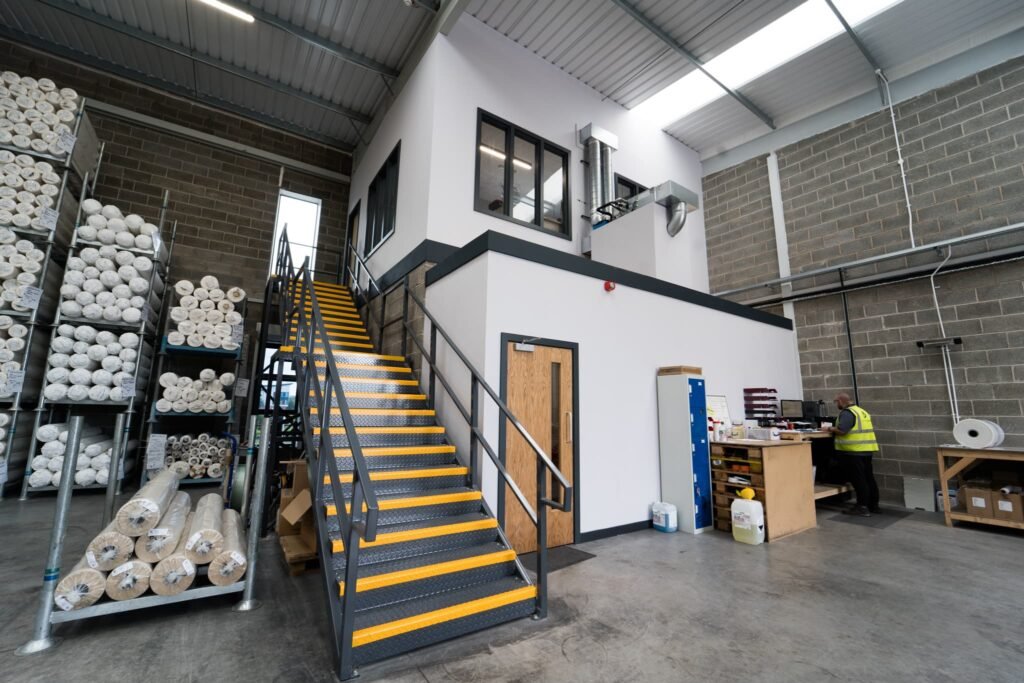💡 How to Start a Small-Scale Manufacturing Business in the U.S. – A Complete Guide
🔑 Introduction:
Starting a small-scale manufacturing business in the U.S. can be an exciting and profitable venture, especially in the current economic climate, where tariffs have made imported goods more expensive. By manufacturing locally, you can reduce supply chain issues, offer quality products, and tap into the growing trend of Made in the USA. In this post, we’ll walk you through the essential steps to set up your own manufacturing business, from product selection to operational tips.

1️⃣ Step 1: Research the Market and Find a Profitable Niche 🔍
Before jumping into manufacturing, it’s essential to research the market and identify a profitable niche. While the U.S. has numerous industries, focusing on a niche market can help you stand out and reduce competition.
Key Questions to Ask:
- What products are in demand locally? 📈
- What industries are underserved or growing rapidly? 🚀
- Are there existing gaps in the market you can fill? ❓
Popular small-scale manufacturing niches in the U.S. include custom furniture 🪑, eco-friendly products 🌱, 3D-printed items 🖨️, and personalized tech accessories 📱. Identifying a specific product that aligns with consumer demand and your interests will lay a solid foundation for your business.

2️⃣ Step 2: Create a Business Plan 📝
A well-thought-out business plan is essential for the success of any manufacturing venture. This plan will help guide you in setting up your operations, managing finances, and planning for growth.
Key Components of a Business Plan:
- Executive Summary: Brief overview of your business and goals.
- Product Line: What products will you manufacture and sell? 🏷️
- Market Research: Insights into your target audience and competitors 📊
- Marketing Strategy: How you plan to attract customers 📢
- Financial Plan: Detailed breakdown of startup costs, pricing, and projected earnings 💰

3️⃣ Step 3: Set Up Your Manufacturing Space 🏭
When starting small, you don’t need a large factory. Many small-scale manufacturing businesses begin in home garages 🏠, workshops 🔨, or rented spaces. As your business grows, you can invest in a larger facility.
Considerations for Your Manufacturing Space:
- Location: Choose a location that is accessible for shipping and receiving materials 🚚.
- Equipment: Invest in the essential equipment required for your product line ⚙️.
- Safety: Ensure your space meets local safety regulations and has proper ventilation, lighting, and equipment for workers 🦺.

4️⃣ Step 4: Source Materials and Build Supplier Relationships 🤝
Once you’ve determined what you will manufacture, the next step is sourcing high-quality materials. Building strong relationships with local suppliers is key to ensuring you receive reliable and cost-effective materials for your products.
Tips for Sourcing Materials:
- Buy Locally: Reduce shipping costs and help support the local economy 🌍.
- Negotiate Prices: Build strong relationships with suppliers to get the best deals on raw materials 💬.
- Quality Control: Ensure that all materials meet quality standards to avoid issues with your final product ✅.
5️⃣ Step 5: Manufacturing Process and Quality Control 🔧
Having a streamlined manufacturing process is critical to producing high-quality products efficiently. Depending on the product, you might need to set up assembly lines 🔄 or invest in automated machinery 🤖. Quality control is a key aspect of manufacturing; make sure every product meets your standards before it reaches the customer.
Manufacturing Process Tips:
- Standard Operating Procedures (SOPs): Create clear, repeatable processes for each stage of production 🔄.
- Quality Assurance: Regularly inspect your products for defects 🔍.
- Scale Efficiently: As demand grows, consider investing in automation or hiring more workers to meet the needs of the business 📈.

6️⃣ Step 6: Set Up Logistics and Distribution Channels 🚚
Once your products are ready, you need an effective system for shipping and distribution. Offering fast and reliable shipping is key to keeping customers happy and competitive in the market.
Logistics and Distribution Tips:
- Inventory Management: Use software to track stock levels and streamline order fulfillment 📦.
- Shipping Partnerships: Partner with reliable couriers to ensure timely delivery 🚀.
- Customer Service: Provide excellent support for any order issues or returns 🎧.
7️⃣ Step 7: Market Your Business and Build Brand Awareness 📣
Even though you’re manufacturing locally, getting the word out about your business is crucial. Marketing is what will drive traffic to your website, convert leads into customers, and help you grow.
Effective Marketing Strategies:
- Social Media: Utilize platforms like Instagram and Facebook to showcase your products 📸.
- Content Marketing: Create blog posts, videos, and other content to educate your customers about your products and manufacturing process 📹.
- Local Advertising: Use local newspapers, events, or sponsorships to increase your presence in your community 📰.
8️⃣ Step 8: Focus on Sustainability and Eco-Friendliness 🌍
The demand for sustainable products is on the rise. By focusing on eco-friendly manufacturing practices, you can appeal to environmentally-conscious consumers and set your brand apart.
Manufacturing Business in the U.S.
Manufacturing Business in the U.S.
Eco-Friendly Practices to Consider:
- Use Recycled Materials: Consider using recycled or sustainable raw materials in your products ♻️.
- Reduce Waste: Optimize your manufacturing process to reduce waste and energy consumption 🌱.
- Packaging: Use biodegradable or recyclable packaging to enhance your brand’s eco-credentials 🌿.
🚀 Conclusion:
Starting a small-scale manufacturing business in the U.S. presents a unique opportunity to create high-quality, locally produced products that cater to the growing demand for American-made goods. By following these steps — from choosing a profitable niche to setting up an efficient manufacturing process — you can turn your ideas into a successful, thriving business.
Ready to get started? Focus on your niche, plan carefully, and ensure that your products meet the demand of U.S. consumers. The future of manufacturing is local, and it’s waiting for you! 💼
Let me know in the comments — what coins are you holding this year?
Movr, bake,Glmr and ltc